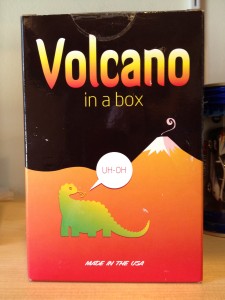
I hope the word “irregular” doesn’t make you think I might offer remedies such as Metamucil, MiraLAX, or Senokot to help your plural nouns become more, well, regular. This post is dedicated to the many people who cause unnecessary harm to their nouns whilst sending e-mails or posting online.
I’m deliberately omitting references to texting because, quite honestly, it’s tough to do battle (from a grammatical perspective) with a smartphone’s auto-correct feature. In fact, I suggest you disable that function immediately!
Transforming nouns from the singular to the plural isn’t always an obvious thought process. The more you’re exposed to all the exceptions, the less often you’ll doubt yourself when writing.
Ready for another fun grammar lesson from an ever-vigilant freelance writer? I hope you are. The 6th-period bell just rang, and you’re several minutes late:
Most Singular Nouns Pair Well with a Simple “s”: Okay, we’ll start out slow. In general, you turn singular nouns into plural nouns by adding an s to the end of the word:
- More than one glockenspiel becomes glockenspiels
- More than one imbecile becomes imbeciles
- More than one katana becomes katanas.
Simple enough, right? But…
Nouns Ending in ch, x, s, or s-Like Sounds Need “es”: …For many other nouns, adding the s just isn’t good (or proper) enough. When your person, place, or thing ends in ch, x, s or an “s-like” sound, add an e in front of your lonely s:
- More than one glitch becomes glitches (Office Space fans, this one’s for you!)
- More than one ax becomes axes
- More than one hot mess becomes hot messes (and so on)
The word bus can mess you up–there are dictionaries listing the plural form of this word as busses, rather than buses. Technically, this is wrong. A buss is an archaic way of referring to a kiss. Go ahead, look it up if you don’t believe me.
Be advised the best way to refer to a caravan of school-like transportation is the following:
“At the end of each camp day, the buses are lined up, ready to escort several hundred sweaty, exhausted children back to their normally scheduled programming.”
Some Irregular Plural Nouns You Just Have to Memorize: You know most of these, but if you don’t, either memorize them or bookmark a handy reference list like this one. We go from:
- Child to children, man to men, and woman to women (we also go from person to people)
- One foot grows into two feet, one goose gives way to two geese, and one mouse morphs into many mice
And yet:
- One deer, two deer
- One fish, two fish (except when you’re quoting dialogue from The Godfather)
- One sheep, two sheep
Beyond the animal kingdom, other words maintain what appear to be plural spellings, even when used in the singular: barracks, species, series, means. Isn’t this fun? Plural nouns formed without adding the typical s or es (or ies) at the end are called mutated (or mutating) plurals. Gee, that makes me think about scary monsters…
Certain Nouns Retain Their Greek or Latin Roots When They Multiply: I don’t claim to be an expert in either Greek or Latin, although I wish I’d been forced to study at least one “dead” language as a student. Rather than bore you with a detailed description of how to convert words ending in um, us, is, on, etc., I think a list and subsequent embedded links will be more useful resources:
- Curriculum, curricula
- Criterion, criteria
- Focus, foci
- Cactus, cacti
- Syllabus, syllabi (this is from Latin and has nothing to do with a school bus)
- Thesis, theses (hence crisis into crises, pronounced “cri-seez”)
- Phenomenon, phenomena
For a more comprehensive list of all the plural nouns that sailed the high seas from Greece or Rome, bookmark any of the following, courtesy of: the University of Tennessee, the Oxford Dictionaries, and the BioMedical Editor.
Nouns Ending in a Consonant and a “y” Need an “i” before the “es”: The key thing to remember here is that when the word ends in y but the letter right before it isn’t a vowel, you must change the y to an i and add es. A gentle reminder: consonants are all the letters other than “a, e, i, o, u (and sometimes y).” Some examples:
- A cavity can lead to more cavities (unfortunately)
- A peony blooms into peonies
- One participation trophy breeds many participation trophies
Please note that the rule doesn’t apply to formal/proper nouns like last names (the Kennedys, the O’Reillys, etc.).
Nouns Ending with an “o” Might Elicit a Need for Headache Relief: This is probably the worst offender when attempting to use your common sense to create the plural form of a noun ending in o. The best advice I can offer is this: Visualize words ending in to and do as toe and doe so you remember to add the es:
- One potato isn’t as good as many potatoes,
- and one tomato isn’t as good as many tomatoes,
- but one tornado is one too many tornadoes.
But just to mess with your head:
- One innocent memo grows into a pile of memos
- One hello is nice, but many hellos are fantastic
- A cello collector can never own enough cellos
When a word ends with another vowel before the closing o:
- A stereo becomes stereos
- One Cheerio isn’t enough–you need a whole box of Cheerios
Nouns Ending in “f” or “fe” Usually Convert to “v” and Add “es” or “s” at the End: Here is the list of usual suspects:
- Knife to knives
- Wife to wives
- Leaf to leaves
- Elf to elves
- Hoof to hooves
There are some tricky exceptions, such as dwarf (the plural is dwarfs) and roof (the plural is roofs). What a grammatical shame that Snow White and her dwarfs aren’t simpatico with Santa and his merry elves!
Other Crazy, Rollicking Exceptions for You to Memorize Regarding Irregular Plural Nouns:
- Nouns that can be singular but take the plural form and use plural verbs (scissors, pants, glasses, etc.)
- Nouns that you think are plural but use singular verbs (news, gymnastics, economics)
- If a noun is a formal title, it always takes a singular verb, even if the name/title is plural (Dewey, Cheatem & Howe; General Motors; the book Holes; etc.)
- The dreaded alumnus, alumni, alumna, and alumnae of collegiate collateral…
Now that I’ve dragged you through the plural-noun beast’s belly, do you recognize any recurring mistakes regarding your own writing habits? Do you tend to memorize exceptions when it comes to the English language? Do you ever actually crack open a (print) dictionary? Or, do you rely on spell-check/auto-correct tools?
My one firm suggestion would be to bookmark an online dictionary and double-check any noun that leaves you unsure of its plural mate. Class dismissed!
Lori Shapiro is the owner of By All Writes LLC, a business-to-business (B2B) writing, editing, and research company in Marlton, New Jersey. She revels in shielding her clients from the pain of writing their own print and web marketing or educational copy. Please call Lori Shapiro at 856-810-9764 or email By All Writes LLC at lori@byallwrites.biz for a no-obligation project quote today!










A great article. It seems the number of people who have decided that proofreading isn’t necessary any more keeps getting bigger, but poor spelling and grammar are still a problem in any materials that are meant to market your goods or services.
However, I think you may have lost the battle about dwarfs. Dwarves has become so common that almost any dictionary will tell you that both forms are acceptable.
Hi Kathy,
Thank you for visiting the Moonlight Blog–I appreciate your compliment.
I suspect our swiftly moving era (of online and mobile communication) contributes to the current decline in proofreading; like you, I’ll keep fighting the good fight. At least Weird Al Yankovic supports our spelling and grammar efforts (via his new video, “Word Crimes”).
I don’t disagree with you regarding the “dwarfs vs. dwarves” dilemma, but I researched the post using online grammar resources. I’m sure my Merriam-Webster’s Collegiate Dictionary doesn’t mind…
Regards,
Lori
Another great blog post, Lori.
How would you pluralize my maiden name? It has always stumped me whether a collection of my cousins are The Schwartzes or The Schwartzs.
Thoughts?
Hi Tobi,
This is a puzzling one, to be sure. My instinctive guess would be to spell the plural version of your maiden name as “Schwartzes” because the ending “z” is an s-like sound.
I always defer to Grammar Girl; in this case, I think she agrees with me: http://www.quickanddirtytips.com/education/grammar/how-to-make-family-names-plural
I hope this helps!
Regards,
Lori